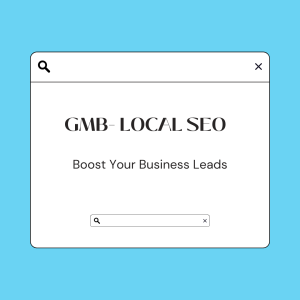What is the Best Platform for eCommerce Web Design?

When launching an online
store, choosing the right eCommerce web design platform is a critical
decision for your business. With numerous platforms available, each offering
unique features, it can be challenging to decide which is best suited to your
specific needs. Let’s explore the leading options and also discuss custom-built
solutions using technologies like Node.js, Laravel, and Next.js,
to help you make an informed decision.
1. Shopify: Simplified for All Levels
Shopify is one of the most
popular eCommerce platforms due to its ease of use. It offers a drag-and-drop
interface, making it ideal for beginners without technical expertise. With
various built-in templates, businesses can quickly set up a professional online
store without coding.
Key Features:
·
User-friendly interface
·
Excellent for small to medium businesses
·
Extensive app store to extend functionality
·
Built-in SEO tools to help rank higher in search engines
·
Secure payment gateways
However, Shopify's limited
design flexibility and reliance on paid apps may not suit businesses looking
for more customization or specific features.
2. Magento: The Customization King
For businesses seeking
greater control over their web design and functionality, Magento (now
Adobe Commerce) is a powerhouse. This open-source platform is highly
customizable, allowing developers to craft unique online shopping experiences.
Magento is perfect for large enterprises needing to manage high-volume
transactions and extensive product catalogs.
Key Features:
- Highly customizable with advanced
features
- Best suited
for medium to large businesses
- Supports
multi-channel and international sales
- Strong
security features and scalability
However, Magento can be
complex for non-developers and may require more resources for hosting,
maintenance, and customization.
3. WooCommerce: Ideal for WordPress Users
WooCommerce is the go-to platform for
those already familiar with WordPress. It transforms any WordPress site into a
fully functional online store, offering extensive design freedom and access to
thousands of plugins for customization.
Key Features:
- Seamlessly integrates with WordPress
- Large
selection of themes and plugins
- Highly
customizable
- Cost-effective
with free and paid options
WooCommerce is ideal for
small to medium businesses, though it may require some development knowledge
for more intricate setups.
4. BigCommerce: Feature-Rich and Scalable
BigCommerce is known for its robust
feature set, including multi-channel selling, SEO tools, and built-in marketing
capabilities. It’s an excellent choice for businesses planning to scale or
those needing integrations with platforms like Amazon and eBay.
Key Features:
- No transaction fees on any plan
- Strong
built-in SEO features
- Multi-channel
integrations
- Scalable for
growing businesses
While BigCommerce offers
great functionality out of the box, customization options may be limited
compared to other platforms like Magento.
5. Squarespace: Design-Focused Simplicity
For small businesses or
artists who prioritize design and aesthetics, Squarespace is an
excellent option. It provides beautiful templates and an intuitive design
interface, making it ideal for creating visually stunning websites.
Key Features:
- Sleek, designer-friendly templates
- Excellent
for small businesses and creative professionals
- Simple to
use with drag-and-drop functionality
- Built-in SEO
tools
While Squarespace excels
in design, its eCommerce features are more basic than Shopify or WooCommerce,
making it suitable for small-scale eCommerce sites.
6. Wix: Easy to Use with Flexible Designs
Wix is a beginner-friendly
platform that offers both drag-and-drop design flexibility and a variety of
templates. It’s great for small businesses or those just getting started in
eCommerce. Wix’s app market allows users to add extra functionality to their
store.
Key Features:
- Beginner-friendly drag-and-drop design
- Flexible
design templates
- Built-in SEO
tools and marketing features
- Suitable for
small to medium-sized businesses
Wix is best for small to
medium stores, but for larger businesses, platforms like Magento or BigCommerce
may provide more scalability.
7. Custom-Built Solutions:
Node.js, Laravel, Next.js, and More
While hosted platforms
like Shopify and Magento provide ready-to-use solutions, many businesses need a
custom approach for greater flexibility, scalability, and integration with
existing systems. This is where custom-built eCommerce platforms using
technologies such as Node.js, Laravel, and Next.js come
into play.
1.
Node.js: Fast and Scalable (Backend)
Node.js is a powerful JavaScript
runtime that allows developers to create fast, scalable web applications. For
eCommerce, Node.js is ideal for businesses needing real-time data processing,
fast page loads, and high performance under heavy traffic.
Key Benefits:
- Highly scalable, perfect for large
eCommerce platforms
- Fast data
processing and high performance
- Can be
integrated with microservices architecture for modular functionality
- Supports
real-time features like live chat and instant notifications
2. Laravel: Secure and Feature-Rich (Backend)
Laravel is a popular PHP
framework that excels in building secure, robust eCommerce applications. With
its modular design and extensive library of pre-built components, Laravel
provides businesses with a customizable and feature-rich platform that can
evolve with their needs.
Key Benefits:
- Excellent for building custom
functionalities
- Strong
security features and built-in authentication
- High
flexibility with integration options
- Scalable
architecture, suitable for growing businesses
3. Frontend:
Next.js: SEO-Friendly and Fast
Next.js is a popular framework
for building server-side rendered React applications. For eCommerce, this means
faster load times and better SEO performance. Next.js is perfect for businesses
that prioritize both front-end user experience and back-end performance.
Key Benefits:
- Excellent for SEO, with server-side
rendering
- Fast,
performance-optimized websites
- Seamless
integration with React for a modern, interactive user experience
- Ideal for
businesses focused on delivering a fast and responsive UI
Why Choose a Custom Solution?
Custom-built platforms
allow for complete control over the design, functionality, and user experience
of your online store. Whether you're integrating advanced inventory management
systems, supporting real-time analytics, or offering a personalized shopping
experience, custom platforms provide unparalleled flexibility.
Though custom development
requires more resources upfront, it offers long-term benefits in terms of
scalability, security, and the ability to meet unique business needs.
Choosing the Right
Platform for Your Business
When choosing between
ready-made eCommerce platforms and custom solutions, consider factors like your
technical resources, budget, scalability needs, and the level of customization
required. Platforms like Shopify, Magento, and WooCommerce
offer great flexibility, while custom solutions built on Node.js,
Laravel, or Next.js provide unmatched customization and
scalability.
Conclusion
The best platform for your
eCommerce business will depend on your specific goals and resources. For those
seeking an easy, fast setup with minimal development, platforms like Shopify
and BigCommerce are ideal. For businesses looking for advanced customization
and scalability, a custom-built solution using technologies like Node.js,
Laravel, or Next.js might be the best path forward.
Ultimately,
the key is to choose a platform that aligns with your business needs and can
grow alongside your company.




